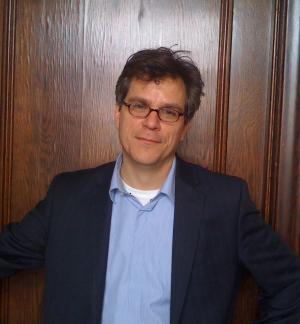
Paul Cheney is an historian of Europe with a specialization in old regime France and its colonial empire. Before beginning his PhD training in history at Columbia University, he studied political economy at the New School for Social Research. He has taught at Columbia University, the European College of Liberal Arts (Berlin), and the Queen's University of Belfast. The unifying element of Professor Cheney’s work is an interest in early modern capitalism, and in particular the problem of how modern social and political forms gestated within traditional society. Old regime France serves as an excellent case study in this problem because of the way in which it combined real economic dynamism with deep-seated political and social impediments to growth. He addresses France’s integration into a globalized early modern economy in a methodology diverse way, drawing on intellectual, economic, and social history. His first book, Revolutionary Commerce: Globalization in the French Monarchy (Harvard University Press, 2010), examined how French philosophes, merchants, and administrators understood the adaptability of the French monarchy to the modernizing forces of primitive globalization. Currently, he is working on a second book entitled, Cul de Sac: Patrimony, Capitalism, and Slavery in French Saint-Domingue (University of Chicago Press, 2017), a micro-history of one plantation in France’s richest colony. He has published in such journals as The William and Mary Quarterly, Past & Present, Dix-Huitième siècle, and Les Annales historiques de la révolution française. Professor Cheney joined the CISSR Faculty Board in January 2022.
Recent Research / Recent Publications
2019-20 Abstract:
His project examines the political context in twentieth-century African independence movements--in this case Senegal--for the writing of colonial history. It takes a basically biographical approach to this subject, by examining the career of Gabriel Debien (1906-1990), a French scholar who generally considered the founder of the social history of the French Antilles. Debien began his career teaching at the University of Cairo, but was hired to establish the department of history at the University of Dakar in 1957, just as Senegal was making the transition to its ultimate independence from France, which it achieved in 1960.
There is a well-established link between the between colonial independence movements and the writing of the history of slavery and abolitionism. Eric Williams, who eventually became the first prime minister of the independent Trinidad and Tobago in 1962, wroteCapitalism and Slavery (1944) after studying in Oxford. In France, leaders of the négritude movement, Léopold Sédar Senghor (future first president of Senegal) and Aimé Césaire (Martiniquan politician) both gave lectures at the Sorbonne about the French abolitionist Victor Schoelcher in April of 1948 to commemorate the 100th anniversary of abolition in the French Empire.
Debien testifies to a reverse movement: instead of a colonial subject studying and writing about slavery and abolition in the metropole, he was was born and educated in western France and then spent most of his scholarly career outside of Europe. The establishment of the discipline of history in Senegal was concurrent with debates over the form that autonomy for France’s overseas possessions would take. Senghor and Césaire both eschewed complete independence for the former colonies, opting--successfully, in the case of Aimé Césaire's Martinique--for a continuing political integration with the metropole. Although this was not to be the case for Senegal, Senghor advocated for a Eurafrican federalism based upon bidirectional cultural influences. These ideas left their traces on establishment of higher education in independent Senegal--a project to which Gabriel Debien was called to contribute.
 THE UNIVERSITY OF CHICAGO
THE UNIVERSITY OF CHICAGO

